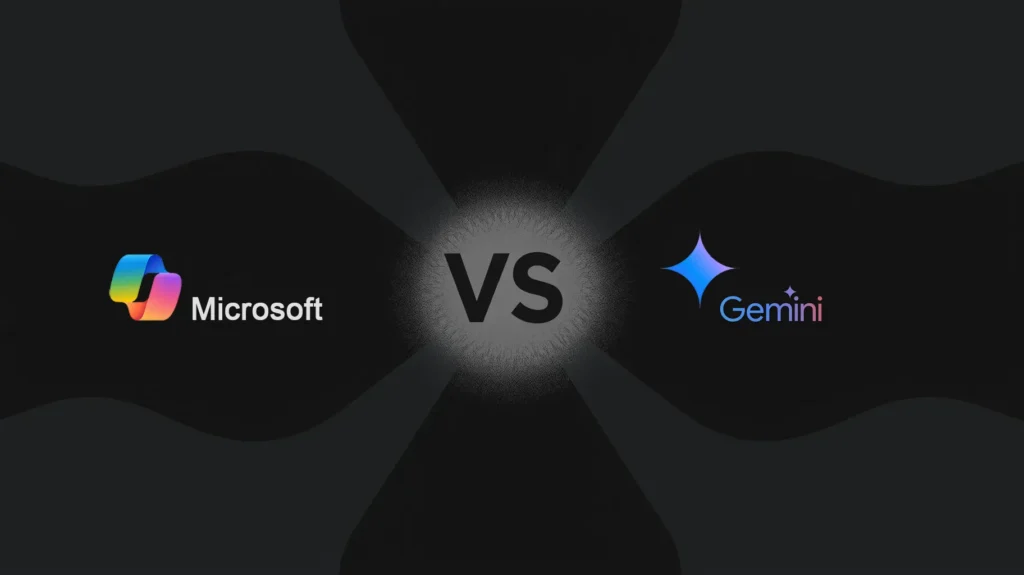
Google’s Gemini Utilities, Microsoft’s Copilot, and various other AI-driven tools are making waves as they aim to reshape productivity and workflow automation.
With technology evolving fast, users and businesses are keen to see which of these tools can deliver the most seamless experience.
Let’s take a deep dive into how Google’s Gemini Utilities compares with Microsoft’s Copilot and other AI utilities in this competitive landscape.
Understanding Google’s Gemini Utilities: An Overview
What Exactly Is Google’s Gemini Utilities?
Gemini Utilities is a suite of AI-powered productivity tools created to assist users in a wide range of tasks, from data analysis to content creation and workflow automation. Gemini aims to make complex processes smoother by leveraging advanced natural language processing (NLP) and machine learning capabilities.
Key Features of Gemini Utilities
- Real-Time Collaboration: Gemini focuses on enhancing real-time collaboration, allowing multiple users to work on a document or project simultaneously.
- Advanced Search and Summarization: It includes powerful search and summarization capabilities, making information retrieval quick and intuitive.
- Integrations with Google Workspace: Gemini is designed to work effortlessly within Google’s ecosystem, making it a practical choice for Google Workspace users.
Target Audience for Gemini Utilities
Google has aimed Gemini at professionals and teams that rely on collaborative, cloud-based platforms. Its seamless integration with Google’s ecosystem is a natural fit for teams already using Google Workspace tools like Docs, Sheets, and Drive. By targeting businesses that need collaboration and quick data insights, Gemini is positioning itself as a game-changer in productivity.
Microsoft’s Copilot: A Strong Contender
What Is Microsoft’s Copilot?
Microsoft’s Copilot is a generative AI tool embedded within Microsoft 365 products such as Word, Excel, and PowerPoint. Designed to elevate productivity, it leverages OpenAI’s GPT-4 model to help users with document generation, data summarization, and project management tasks.
Core Features of Copilot
- Document Drafting and Content Generation: Copilot assists in generating high-quality text, making it ideal for report generation, email composition, and more.
- Excel Data Insights: In Excel, Copilot helps users quickly analyze and visualize data, offering suggestions for charts, data trends, and insights.
- Presentation Design Assistance: It provides help with creating visually appealing presentations in PowerPoint, complete with suggested layouts and visual elements.
Copilot’s Appeal for Microsoft Users
Copilot is especially appealing for Microsoft 365 users who value robust productivity tools within a unified ecosystem. By embedding itself within Word, Excel, and PowerPoint, Copilot makes tasks that were once time-consuming much easier to complete within familiar programs, ensuring a smoother user experience.
Gemini vs. Copilot: A Feature Comparison

Collaboration Capabilities
Both Gemini and Copilot offer collaborative features, but they approach them differently. Gemini’s integration within Google Workspace means real-time collaboration is baked into its core functionality, while Copilot enhances individual productivity within Microsoft 365, with limited focus on real-time team editing.
Content Creation and Document Assistance
When it comes to content creation, Copilot’s use of GPT-4 makes it particularly strong in drafting high-quality, human-like text. Gemini, however, shines in summarization and data retrieval, providing quick overviews and insightful summaries within documents, which is ideal for project research and meeting preparation.
Data and Analytics Support
Microsoft’s Copilot is a clear frontrunner for users focused on data insights, especially with its integration in Excel. The tool’s ability to interpret data and suggest visual representations makes it powerful for analytics. Gemini, on the other hand, focuses less on analytics and more on summarizing complex information, which can be a useful feature for general knowledge workers and research professionals.
Competing AI Utilities: Are There Other Strong Options?
Other Key Players: ChatGPT and Jasper
While Google and Microsoft hold much of the spotlight, tools like OpenAI’s ChatGPT and Jasper AI offer unique features and appeal to specific segments of users. ChatGPT, for example, is an open platform that excels in generating conversational responses and performing quick calculations, while Jasper is a content-creation powerhouse that’s popular among marketers.
Notable Features of ChatGPT and Jasper
- ChatGPT: Best for conversational interactions, idea generation, and casual research tasks.
- Jasper: Focuses on creative content creation, optimized for marketing copy, blog posts, and SEO content.
How Gemini and Copilot Compare with Other AI Tools
Compared to ChatGPT and Jasper, Gemini and Copilot are more ecosystem-focused. Gemini’s strength lies in the collaborative nature of Google Workspace, while Copilot is deeply integrated into the productivity-driven Microsoft 365 environment. In contrast, ChatGPT and Jasper are more flexible, but less integrated into specific workflows, which may appeal to users who need a standalone tool.
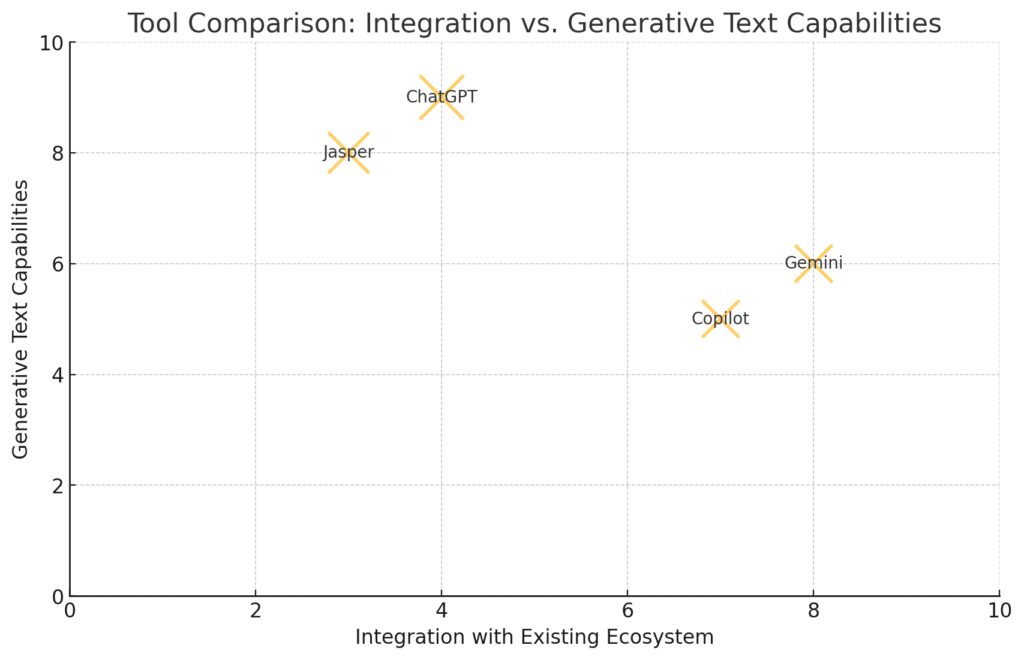
Usability and User Experience: Gemini vs. Copilot in Real-World Scenarios
Ease of Use: Which Tool Is More Intuitive?
Both Google Gemini Utilities and Microsoft Copilot aim for intuitive design, but their ease of use can vary depending on user familiarity with Google Workspace or Microsoft 365. Gemini’s interface is similar to other Google tools, making it a smooth transition for Google users. Its integration into Gmail, Google Docs, and Sheets means users can expect a familiar layout and streamlined functionality, especially for collaborative tasks.
Copilot, on the other hand, integrates directly into Microsoft 365 applications like Word, Excel, and PowerPoint. Copilot appeals to users who are comfortable with Microsoft’s layout and need a tool that blends well with the Microsoft Office suite. For document creation or data visualization, Copilot’s in-app assistance is straightforward, making it accessible to users at all skill levels.

Adaptability for Different User Needs
Gemini’s strength lies in collaborative environments—ideal for teams who require shared document access and live editing. Users can assign tasks, leave comments, and adjust in real time, making Gemini a preferred choice for projects with high interaction levels.
Copilot, in contrast, is designed for individual productivity within shared documents. It assists with everything from crafting professional emails to generating reports, while still allowing shared editing but without the simultaneous collaboration features that Google offers. For teams working asynchronously or individually, Copilot is highly effective.
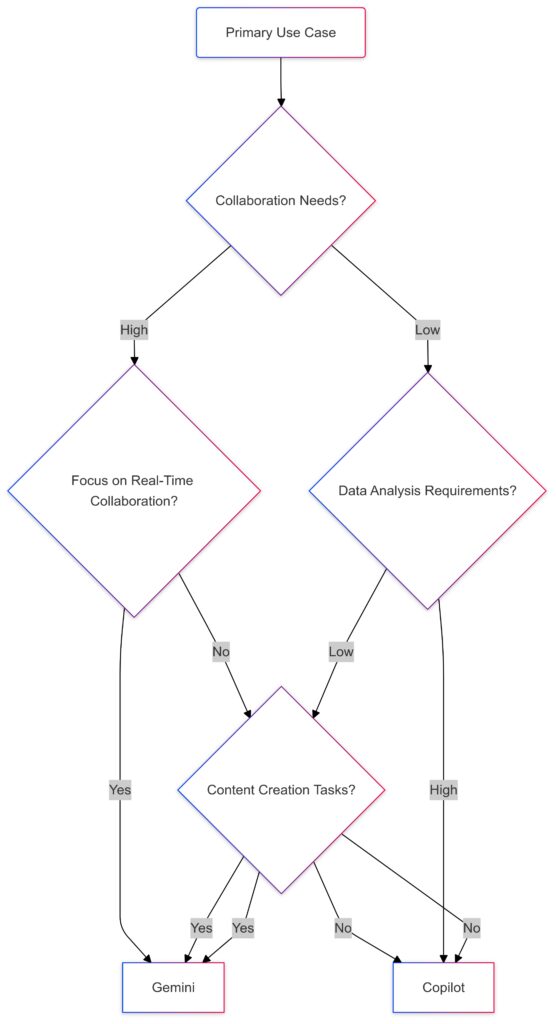
Support for Cross-Platform Compatibility
Both Gemini and Copilot score well for cross-platform compatibility within their respective ecosystems. Gemini offers seamless integration across Google’s cloud-based applications, making it easy to access on mobile, desktop, and tablets through a single Google login. Copilot’s compatibility with Microsoft’s cloud-based apps means users can access their projects from multiple devices, but it may require additional setup with Microsoft’s OneDrive or SharePoint for shared access.
AI-Powered Assistance and Customization
Gemini’s AI Summarization vs. Copilot’s Document Drafting
Gemini’s summarization capabilities give it a strong edge for users who need quick insights from lengthy documents or emails. By breaking down dense content into digestible summaries, it helps users keep pace with large volumes of information without missing critical points. For managers and teams handling numerous reports or project updates, this feature is a valuable time-saver.
Microsoft Copilot’s document drafting feature, however, is where it shines, especially for tasks requiring complex writing or data interpretation. Leveraging GPT-4, Copilot can generate detailed text, assist with formatting, and adapt tone based on document type, making it highly effective for business reports or proposals. It can also generate prompts to analyze data or visualize results directly in Excel, providing another layer of customization that enhances productivity.
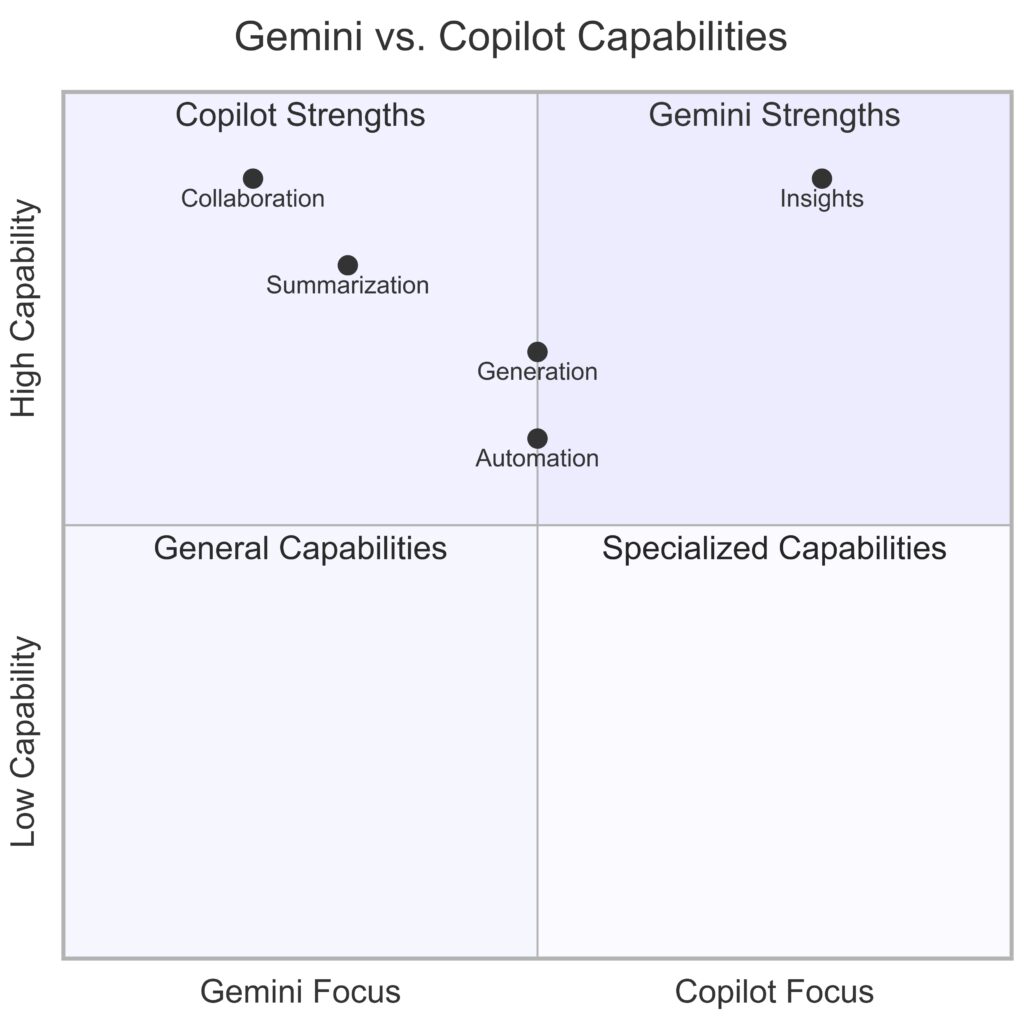
This chart visualizes the capabilities of Gemini and Copilot across five key dimensions, highlighting Gemini’s strengths in real-time collaboration and summarization, and Copilot’s edge in data insights.
Task Automation and Workflow Optimization
Both Gemini and Copilot offer task automation, though they target different areas. Gemini enables automated data pulls and updates, making it perfect for collaborative environments where teams rely on frequently updated information, like shared spreadsheets. It automates repetitive tasks, such as importing data or refreshing document content, helping reduce busy work.
On the other hand, Copilot is focused on automating document and data creation. For users in need of repetitive text, slide layouts, or data chart generation, Copilot provides templates and suggestions, streamlining tasks that would otherwise be manual. This feature is particularly beneficial for users in data-heavy fields like finance or marketing who regularly prepare reports and presentations.
Privacy, Security, and Compliance Considerations
Privacy Standards and Data Security Measures
Both Google and Microsoft prioritize user privacy and data security to ensure user confidence in their tools. Gemini and Copilot leverage advanced encryption standards to protect sensitive data. Gemini’s security measures are backed by Google’s robust cloud infrastructure, with strict privacy controls that meet compliance standards for industries like healthcare and finance.
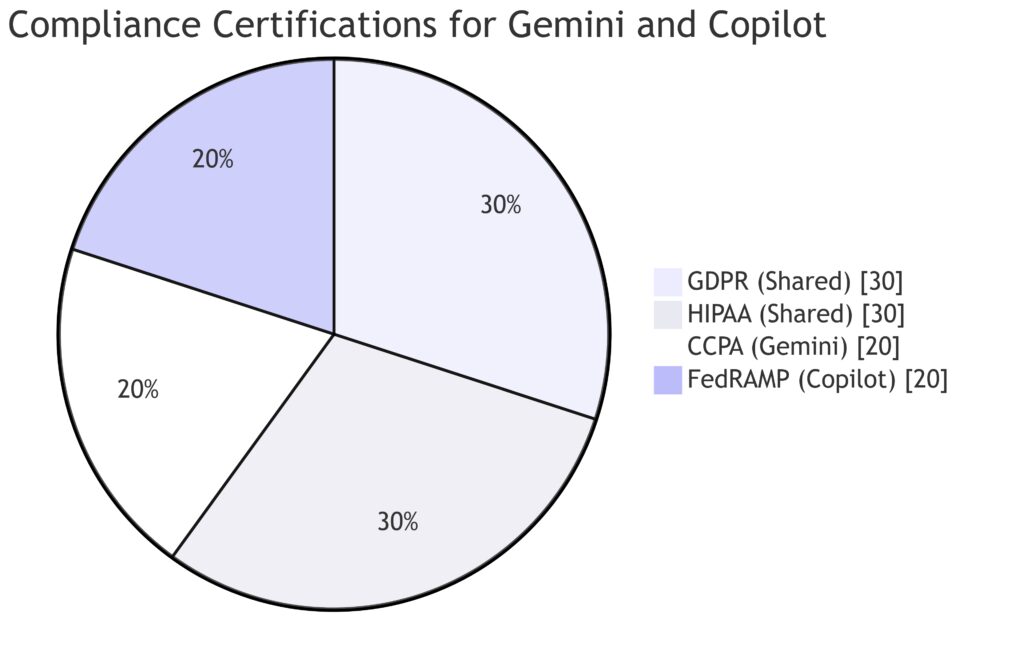
Shared certifications (GDPR, HIPAA) and unique certifications (CCPA for Gemini, FedRAMP for Copilot) for each tool.
Microsoft’s Copilot integrates with Microsoft 365’s security infrastructure, which includes multi-layered data protection, encryption, and compliance certifications. For enterprises handling sensitive data, Microsoft’s extensive compliance certifications make Copilot a secure choice. Both platforms also give IT administrators control over user permissions, enabling tighter access control for corporate or sensitive documents.
Compliance and Regulatory Support
In terms of regulatory support, Microsoft takes a slight lead, with more extensive certifications such as GDPR, HIPAA, and FedRAMP. Copilot is designed to meet compliance standards across several industries, offering robust controls for businesses with high regulatory requirements.
Google’s Gemini meets major compliance requirements as well but is most appealing to businesses already using Google’s services. For general workplace privacy, both tools provide robust frameworks, though Microsoft’s certifications are broader and cater to highly regulated industries.
Cost and Accessibility: Which AI Tool Offers Better Value?
Subscription Models and Pricing Options
Both Google and Microsoft offer flexible subscription models that scale with business needs, but they have different pricing strategies. Google Gemini is typically included within Google Workspace’s higher-tier business plans, making it accessible to current Google users without additional cost. This bundling makes Gemini affordable, particularly for small to medium-sized businesses looking to add AI-powered tools without a substantial price increase.
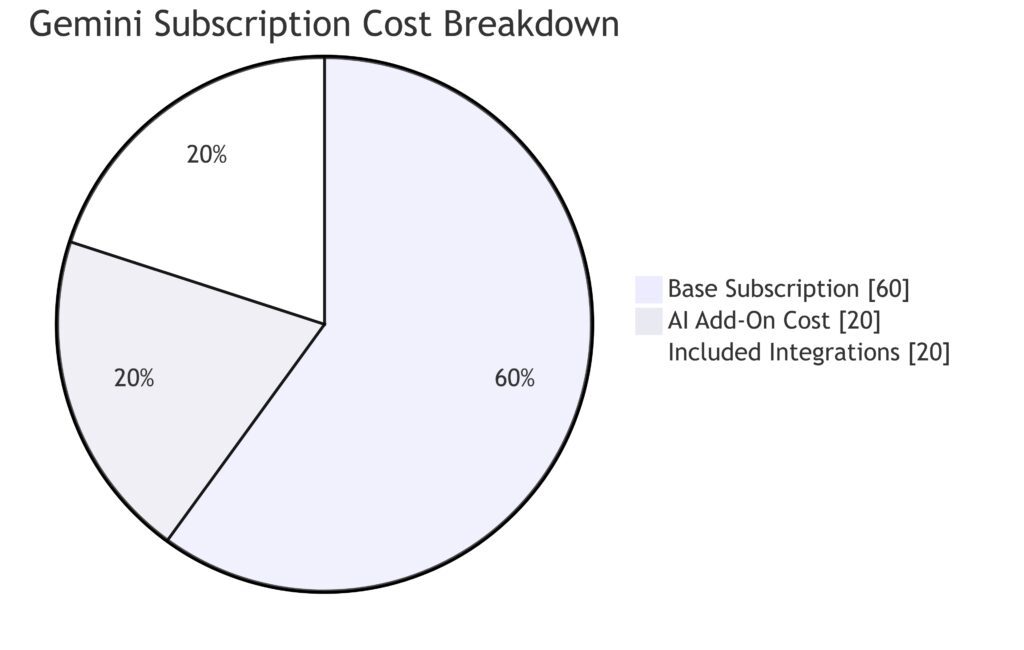
Microsoft Copilot is an add-on service for Microsoft 365, meaning it requires an additional subscription on top of existing Microsoft Office licenses. While the cost may be higher, the added features, especially for data-intensive roles, justify the price. Large enterprises that rely on Microsoft 365 for extensive data analysis and document management may find Copilot’s pricing reasonable given its robust AI capabilities.
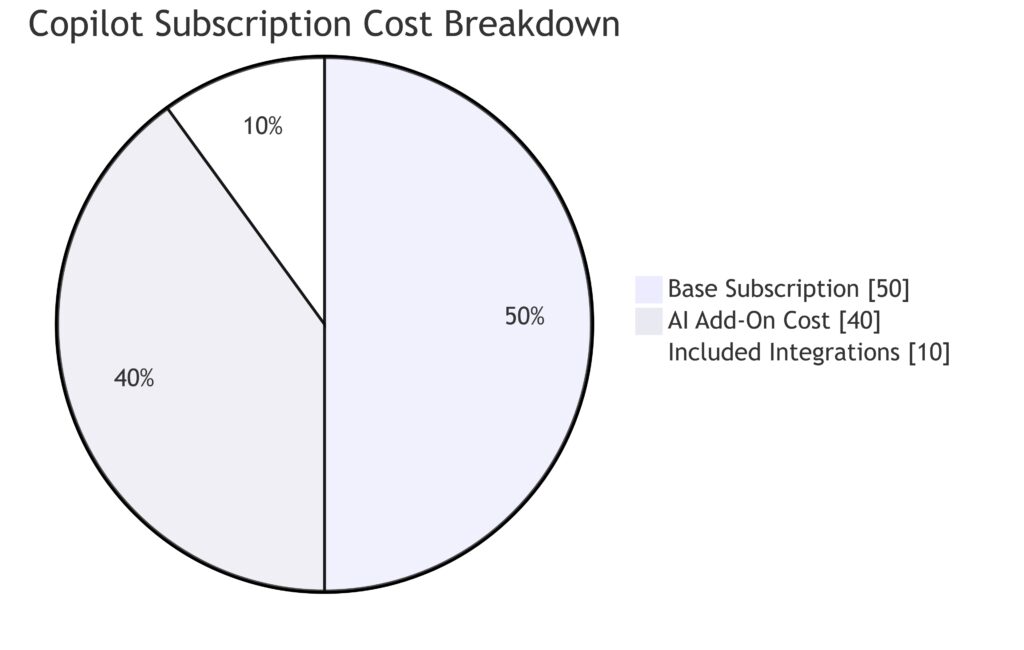
User Accessibility and Availability
Accessibility is key to maximizing the usability of AI tools. Google Gemini is available across all Google Workspace platforms, making it accessible to teams across devices, locations, and operating systems. Its cloud-based nature is particularly beneficial for remote or hybrid teams who need reliable, cross-platform functionality.
Microsoft Copilot offers similar availability, though it’s largely accessible within Microsoft 365 desktop and web applications. While it lacks the universal browser-based access of Google’s tools, it compensates with deep integration in Microsoft Office. For traditional office setups, Copilot’s accessibility is optimal, though hybrid and mobile-first teams might find Gemini’s flexibility better suited to their needs.
Gemini Utilities and Copilot both bring impressive capabilities to the table, but their effectiveness varies depending on the specific needs of users and the ecosystems they already operate in.
For Google and Microsoft users alike, the choice ultimately boils down to preferred tools and workflows. Next, let’s look at how these tools could transform productivity and user habits in the long term, and where they fit in the ever-growing AI landscape.
FAQs
Are Gemini and Copilot secure for enterprise use?
Both Gemini and Copilot prioritize data privacy and security. Gemini benefits from Google’s cloud-based encryption and privacy controls, while Copilot leverages Microsoft’s extensive security infrastructure, including advanced compliance certifications like GDPR and HIPAA. Both tools offer strong protection, but Microsoft’s compliance portfolio is slightly broader, appealing to highly regulated industries.
What are the main advantages of using Gemini over other AI tools?
Gemini’s biggest advantage lies in its integration with Google Workspace, enabling smooth real-time collaboration and streamlined workflow automation. Its summarization feature is a standout, helping teams stay on top of information quickly. Gemini is ideal for collaborative environments where document sharing and live editing are essential.
How does pricing work for Gemini and Copilot?
Gemini is included in Google Workspace’s business plans, making it affordable for current users of Google’s platform, especially for small to medium-sized teams. Copilot, however, requires an additional fee on top of Microsoft 365 subscriptions, reflecting its advanced functionality, particularly for data analysis and content generation. Both offer scalable pricing options for larger teams.
Can I use these tools on mobile devices?
Yes, both Gemini and Copilot are accessible on mobile, though with some limitations. Gemini’s cloud-based design allows easy access across devices, including mobile, making it ideal for remote teams. Copilot is also available on mobile through Microsoft 365 apps, though its full functionality may be limited compared to desktop versions.
Is Gemini or Copilot better suited for team collaboration?
Gemini is the stronger choice for team collaboration, thanks to Google’s real-time editing capabilities and seamless document sharing in Google Docs, Sheets, and more. Copilot does support collaboration, but its primary focus is on enhancing individual productivity within documents, which may suit teams working asynchronously.
How do other AI tools like ChatGPT and Jasper compare to Gemini and Copilot?
ChatGPT and Jasper are more versatile and independent of specific ecosystems, making them great for general use and creative content generation, like blog posts and marketing copy. However, they lack the deep integration Gemini and Copilot have within Google and Microsoft’s platforms, respectively, making Gemini and Copilot more appealing for users heavily invested in those ecosystems.
Which AI tool offers the best features for data analysis?
Microsoft Copilot is the frontrunner for data analysis due to its deep integration with Excel. Copilot helps users interpret complex datasets, suggest visualizations, and identify trends, making it ideal for professionals in data-heavy fields. While Google’s Gemini focuses on data organization and quick insights, it lacks the in-depth analytical capabilities offered by Copilot in Excel.
Can Gemini and Copilot automate repetitive tasks?
Yes, both tools offer task automation features designed to save time. Gemini automates repetitive processes like data updates in shared documents, perfect for team projects requiring regularly refreshed information. Copilot automates tasks like text generation, chart creation, and data summarization within documents, particularly beneficial in workflow-heavy roles.
Do Gemini and Copilot work well in hybrid or remote work environments?
Gemini’s cloud-based nature makes it ideal for hybrid or remote teams, enabling users to access documents from any device, at any time. With its real-time editing and sharing capabilities, it’s designed for collaborative, location-flexible teams. Copilot also supports remote work, though it relies more on Microsoft’s desktop apps and cloud storage, making it slightly less adaptable than Google’s web-based approach.
Is it easy to switch between Google’s Gemini and Microsoft’s Copilot?
Switching between Gemini and Copilot depends on familiarity with the Google Workspace and Microsoft 365 ecosystems. Users already accustomed to one platform may find it challenging to switch, as both tools are optimized for specific applications. Gemini users benefit from Google’s suite of apps (Docs, Sheets, Slides), while Copilot is deeply embedded in Microsoft’s 365 suite (Word, Excel, PowerPoint). Transitioning may require additional setup and training.
How do these tools support businesses with strict regulatory requirements?
Both Gemini and Copilot meet high standards for security and regulatory compliance. However, Microsoft’s extensive list of industry certifications—including HIPAA, GDPR, and FedRAMP—may appeal to businesses with more demanding regulatory requirements. Google’s Gemini also meets standard compliance needs, especially for companies already operating within Google’s ecosystem.
Are there customization options for Gemini and Copilot?
Customization in these tools mainly centers on workflow preferences and document setups. Gemini allows some customization within Google’s suite, such as custom templates and automated workflows in Sheets. Copilot offers more customization options within Excel, where users can automate data insights and personalize document drafting based on unique needs. Both tools enable companies to configure settings at the team or organization level.
What kind of support do Google and Microsoft offer for Gemini and Copilot?
Google and Microsoft both provide extensive support for their AI tools, including tutorials, help centers, and customer support for business accounts. Microsoft’s support tends to be more detailed for enterprise-level clients, while Google offers accessible support channels for small to mid-sized teams. Both companies also regularly update their tools, providing new features and improvements to enhance user experience over time.
Do Gemini and Copilot support integration with third-party applications?
Both tools support some level of integration with third-party applications, though they prioritize their own ecosystems. Gemini integrates well with Google add-ons and popular web applications, such as Slack and Asana, to enhance productivity. Copilot, while primarily tied to Microsoft’s tools, allows integrations with popular business applications like Teams and Dynamics 365. However, third-party integrations may vary based on subscription levels and specific organizational needs.
How do these AI tools handle multilingual support?
Both Google and Microsoft prioritize multilingual support, making Gemini and Copilot useful for global teams. Gemini leverages Google’s extensive language capabilities, allowing users to translate and generate content in multiple languages, ideal for international projects. Similarly, Copilot supports several languages within Microsoft 365 applications, enabling users to draft and analyze documents in various languages. However, language availability and functionality may vary by region, with primary support focused on major global languages.
Can these tools help with project management tasks?
While neither Gemini nor Copilot are dedicated project management tools, they can still aid in project organization and collaboration. Gemini, with its Google Workspace integration, allows users to create shared docs, task lists, and collaborative calendars, which can support basic project management workflows. Additionally, users can integrate Gemini with third-party project management tools like Asana and Trello for more robust management features.
Copilot can also assist with project tasks by generating progress reports, visualizing data in Excel, and drafting project documentation in Word. For teams that use Microsoft Teams, Copilot enhances collaboration through in-app suggestions and automated follow-ups, though it doesn’t offer traditional project management tools like task tracking or Gantt charts.
What are the limitations of using Gemini and Copilot?
Each tool has its limitations based on its targeted user base and ecosystem focus. Gemini, though powerful for collaborative work, may lack advanced data analytics features that users in finance or data-intensive roles might require. Additionally, Gemini’s functionality is closely tied to Google Workspace, which could limit customization options for businesses that rely on multiple platforms.
Copilot, while effective for document generation and data analysis, is primarily designed for individual productivity within Microsoft 365. It may not be ideal for users who need real-time collaboration with Google-level fluidity. Also, since Copilot requires an additional cost on top of Microsoft 365 subscriptions, it could be less cost-effective for smaller teams or those needing extensive cross-platform flexibility.
Do Gemini and Copilot offer offline functionality?
Since both tools rely heavily on cloud integration, offline functionality is limited. Gemini is designed for Google’s cloud-based Workspace, so most of its features require an internet connection. However, Google Docs and Sheets offer basic offline access, enabling users to edit documents and sync changes once back online.
Copilot also requires an internet connection for most AI-driven features, as it depends on cloud processing to function. Certain Microsoft 365 applications offer limited offline functionality, but Copilot’s advanced features, like real-time data insights and content generation, remain unavailable offline.
Resources
Official Product Pages
- Google Gemini Utilities – Explore Google Workspace’s capabilities and learn more about Gemini’s role in enhancing productivity and collaboration.
- Microsoft Copilot – Discover Microsoft 365 Copilot’s features and how it integrates with Microsoft Office tools like Word, Excel, and PowerPoint.